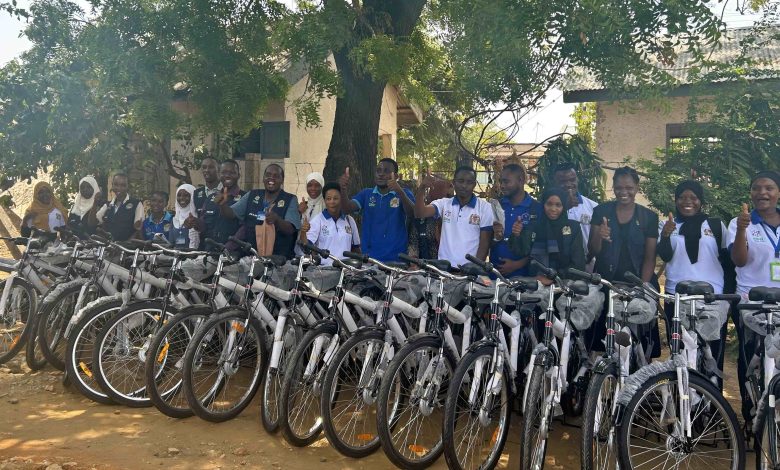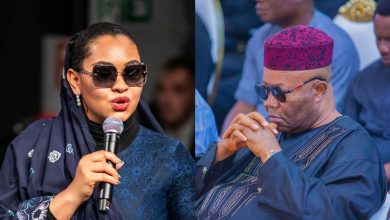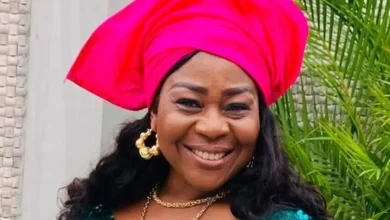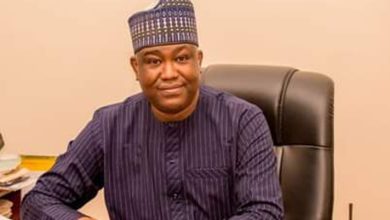To Reduce School Transport Burden, We’ll Provide 1,000 Bicycles – Aroge

In an interview with OLORUNDARE ENIMOLA, road safety advocate and GRA Empowerment Foundation founder/president Mr. Gabriel Rotimi Aroge described how his organization is using cycling as a workable way to remove the cost of transportation to schools for underprivileged public school students through an initiative he called “Cycle2School Plus (C2S+).” The initiative is set to launch a pilot project in September and October, with plans to donate 1000 bicycles. Extracts:
Tell us about yourself, sir, please.
I am the GRA Empowerment Foundation’s founder, Gabriel Rotimi Aroge. Beyond activism, my concentration is on road safety and non-motorized transportation as an advocate for the Sustainable Development Goals (SDGs).
Design thinking and social entrepreneurship are my passions, and I’m particularly interested in innovative solutions that empower marginalized youth.
Tell us what motivated you to pursue your advocacy work.
The scope of our activity is multifaceted. I work as a social enterprise developer and product designer, and I specialize in leveraging cycling as a workable way to help underprivileged public school students in Nigeria get an education. The first phase of our program, Cycle2School Plus (C2S+), will begin in September or October. It will give kids, particularly girls, who are hampered by lengthy and hazardous walks to school, free, safe transportation.
Over 100 persons were murdered in a crash at the Agric Bus Stop in Ikorodu on October 21, 2006, which served as the impetus for this initiative.
My wife, the sole survivor, was in the hospital for a year. It was this profound loss that sparked my goal. I decided to make a contribution through creativity and grassroots empowerment after realizing the seriousness of the UN Decade of Action for Road Safety.
Our development is focused on enhancing the protection and enhancement of cycling and walking since our target beneficiaries are members of the vulnerable and endangered groups of road users.
Due to Nigeria’s low level of road safety education, cyclists and pedestrians are frequently the targets of hostile, unpleasant, and inexperienced drivers or even pose a threat to themselves while driving.
We think that by establishing a platform such as Cycle 2 School Plus, we can be “the change” in tackling the low level of road user illiteracy in Nigeria.
We think that road safety needs to be enterprised, decentralized, and democratized, and we are doing just that with C2S+.
Are your partners and audience understanding your message?
Yes, but it’s still possible to improve. SDGs 1, 3, 4, 5, 8, 11, 13, 16, and 17 are in line with our concept. Through a single, scalable platform, we are tackling poverty, health and well-being, gender equality, decent work and economic growth, sustainable cities, climate action, peace justice, strong institutions, and quality education in order to accomplish the goals.
The most important issue we are currently facing is reorienting Nigerian drivers; financing a behavioral change program is desperately needed to assist drivers in appreciating the work of law enforcement.
We project that 70% of people will support our effort, with the other 30% depending on how effectively we present cycling as a revolutionary option. Influencers in policy and executives in the private sector need to realize that this is a need, not a luxury.
What noteworthy accomplishments do you currently have?
The executive director of ReCycle Bikes was hosted in Africa at the Sussex Innovation Center in the United Kingdom.
Performed a work visit at the Recycle warehouse located in Colchester, UK. held the 8th UN Global Road Safety Week in collaboration with the Federal Road Safety Corps (FRSC) and hosted the first-ever visit to Nigeria by ReCycle’s Executive Director in February 2025.
The FRSC and other partners joined us in commemorating World Bicycle Day 2025. Brand ambassadors were appointed, such as Afitz Bakare, a former national cycling champion.
Brand strategist Dr. Charles O’Tudor was brought on board as a mentor and fundraising coordinator.
Our first container of 500 bikes was shipped into Nigeria with the help of foreign assistance and a contribution of 1,000 bicycles; we now require local cooperation to finish the program’s implementation plan.
How do you finance your business?
People, including volunteers and partners who have years of pro bono experience, are our greatest asset. ReCycle UK paid for all of the shipping expenses for more than 500 bikes to Nigeria.
The Sussex Innovation Centre funded a more than £10k business incubation program. In addition to training me as a volunteer, Brighton Bike Hub now provides technical help for our operations.
All of them would be very expensive if we had to pay for them out of pocket. Re-Cycle Bike to Africa, our main partner, has provided 1,000 bikes to support the start of our pilot program in Lagos. I first worked there as a mechanic apprentice during my MSc program at the University of Sussex.
Read Also: Four members of Nigeria’s Super Falcons Make the WAFCON 2024 Best XI
They could support me without knowing who I was or where I was from. This cause is fantastic; they have been to Nigeria to confirm our claim, and they are now going to push much more than they have in other African nations.
We need Nigerian partners to maintain this momentum, though. Joining this historic endeavor is a call to action for banks, insurers, FMCG companies, telcos, and charitable groups.
Students must spend up to N90,000 a year for transportation, thus education isn’t free. This load will be lifted by C2S+.
For the first time, we will be introducing a fleet of bicycles for schoolchildren, so they can use the service for free for the duration of their stay in school.
One would assume that free education is what it sounds like. And what about transportation? Also, is that free? In the meantime, this is a daily expense that frequently causes many students to drop out of school, while those who are able to do so hike long and perilous distances to get to school in a staggered pattern. This does not result in the high quality and best performance that these children would have if they had been given the same opportunities as their peers.
What are your thoughts on bicycle infrastructure for the Nigerian government?
Behavioral transformation is more urgent than infrastructure.
First, let’s talk about road safety programs, policy enforcement, and public education. Before any infrastructure can work, we need to address driver aggression and reckless driving practices.
More importantly, accessible pathways and bike lanes need to be incorporated into urban planning in places like Lagos. All requirements of LAMATA’s Non-Motorized Transport (NMT) policy must be met. But we also have to make safe use of what we have.
How can we lessen traffic accidents in Nigeria?
Make an investment in all road users’ education about road safety. Punish infractions and enforce traffic laws; justice serves as a deterrence.
Beginning now, educate the future generation in schools. Make cycling and walking attractive modes of transportation.
Make sure that transport governance incorporates and amplifies SDG 16 (Peace and Justice).
Today, we will help prepare tomorrow’s drivers with our Cycle2School+ program.
Traffic regulations should also be enforced more strictly, and improved road safety features like speed bumps and signage must be put in place. The number of cars on the road can be decreased, which lowers the chance of accidents, by encouraging cycling.
What are cycling’s financial advantages for Nigeria?
For low-income households, it lowers transportation costs.
It’s good for you: It lowers medical costs and encourages physical fitness.
Green: Reduces emissions and safeguards the environment.
Sparks operates local repair businesses, rental properties, and training facilities.
It makes sense because it reduces traffic in densely populated areas like Lagos.
In five years, how do you envision the GRA Empowerment Foundation?
In all 36 states, we aim to be Nigeria’s foremost proponent of non-motorized mobility by 2030.
To establish training hubs, we intend to: Collaborate with academic institutions (such as LASU, UNILAG, and NITT). Create a nationwide volunteer organization. Establish bicycle repair cooperatives run by the community.
We can use our impact tracking system to offer scholarships. Work with FRSC to increase the number of school-based Road Safety Clubs.
Finally, what advice would you give philanthropists and the private sector?
Our foreign partners fulfilled their role without having to know us personally. They made an investment after spotting a promising idea. Nigeria must now step up and take the initiative. We should collaborate with state governments, individuals of goodwill, global corporations, impact investors, and Rotary Clubs. Through mobility, we can provide free, secure, and respectable access to education.
Join our cause and lend your support. One bicycle can have a lasting impact on a child’s life.





